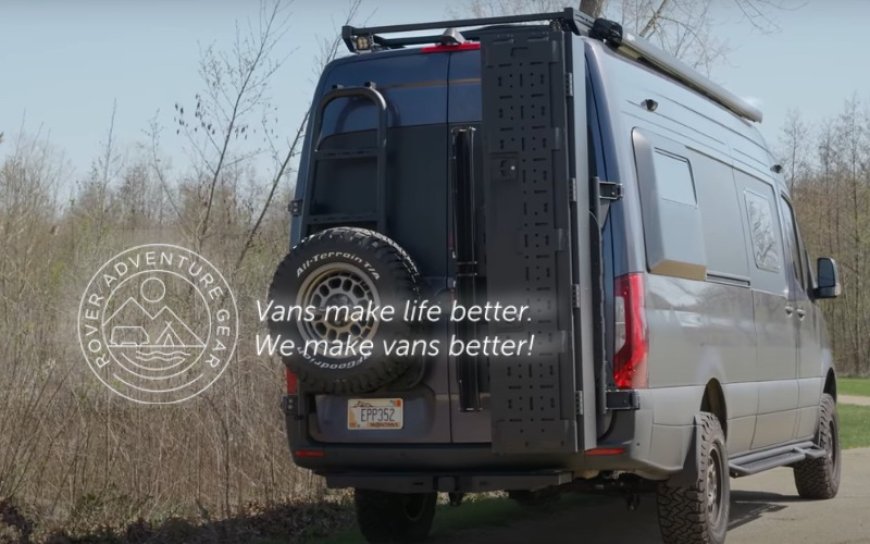The Truth About Living in a Van
Discover the real pros and cons of van life—freedom, challenges, and what it truly means to live on the road.

When you think about living in a van, it’s easy to imagine golden sunsets, ocean views, and freedom from rent and utility bills. Social media is filled with beautiful images of tiny homes on wheels parked in dreamy locations. But what is the reality behind those curated snapshots?
Living in a Van – What You Need to Know
Living in a van offers a sense of freedom that is hard to describe. You wake up each morning knowing you can choose where to go next. If you don’t like a place, you can leave. If you fall in love with a beach or mountain, you can stay as long as local rules allow. Your home moves with you, and the world becomes your backyard.
You also gain a deeper connection with nature. Mornings begin with birdsong instead of alarms, and evenings end under a sky full of stars far away from city lights.
But van life isn’t just about freedom. It’s about making everyday life work in a small, mobile space:
-
Family life: Many families travel with young children in their vans. It means schooling becomes homeschooling or worldschooling, and routines need to adapt to life on the road. Kids often thrive with nature, but they may miss friends or activities in one location.
-
Costs: While you avoid rent or mortgage payments, you’ll still have costs: fuel, maintenance, insurance, campsite fees, mobile data plans, and repairs. Some months will be cheaper than apartment living, but unexpected repairs can be expensive.
-
Travel logistics: Moving constantly requires planning routes, checking local overnight parking rules, finding water refill stations, and knowing where you can dump grey water legally.
-
Repairs and breakdowns: Mechanical issues happen eventually, whether you drive a brand-new van or a 20-year-old conversion. Having an emergency fund is essential to cover repairs that could otherwise leave you stranded.
-
Health and safety: Living in a van with a baby or young child means creating safe sleeping arrangements, securing car seats correctly, and baby-proofing the living space. For anyone on the road, regular exercise, stretching, and maintaining mental health are priorities when space is limited.
Despite these realities, many still say the trade-offs are worth it for the freedom and life experiences they gain.
Van Life Challenges
However, van life isn’t just a highlight reel of stunning views. The reality is that it comes with daily challenges, especially if you live on the road full-time:
-
Finding safe overnight parking can be stressful, particularly in urban areas where “no overnight parking” signs are common.
-
Showers and bathrooms become something you plan your day around. Some people install indoor showers in their vans, but many rely on public facilities, gyms, or campsite showers.
-
Limited space means tidiness is essential. If you leave clothes or dishes out, your entire home instantly feels cluttered.
-
Water management becomes a part of life. You constantly monitor your freshwater and grey water tanks, especially if you’re off-grid.
-
WiFi and electricity depend on your solar setup or external charging options. Remote work is possible, but it requires planning.
-
Mechanical issues can leave you stranded if you’re not prepared with savings or roadside assistance.
Custom Campervan Conversions – Is It Worth It?
Many people start van life with a basic setup – a mattress in the back, a few storage bins, and a camping stove. This works perfectly for short weekend trips or occasional adventures.
However, if you plan to live full-time in your van, investing in a well-thought-out custom build is worth every cent. Here’s why:
-
Maximises space efficiently – custom cabinets, multi-purpose furniture, and clever layouts create storage where it seems impossible
-
Provides insulation for hot summers and cold winters, making year-round travel comfortable
-
Includes off-grid power setups, like solar panels, batteries, and inverters, ensuring you can charge devices and power appliances anywhere
-
Improves cooking facilities, with built-in stoves, sinks, water tanks, and fridges
-
Adds a bathroom or shower if your van size allows, giving you independence from public facilities
-
Increases resale value, as custom builds with quality craftsmanship remain in high demand
The cost of a custom campervan conversion varies widely:
-
Basic DIY builds: $5,000 – $15,000 USD
-
Mid-range professional builds: $30,000 – $60,000 USD
-
Luxury custom builds: $70,000 – $150,000 USD+
Is Van Life for You?
The truth is, van life isn’t for everyone. If you crave stability, long showers, big kitchens, and a spacious wardrobe, living in a van may feel limiting. But if you seek freedom, connection to nature, adventure, and a simpler way of living, van life offers a sense of fulfilment rarely found in traditional housing.
Before committing, try renting a campervan for a week or two. Experience the daily routines, the small discomforts, and the big joys. If it still calls you after that, then maybe your journey towards living on four wheels is just beginning.
Final Thoughts
Van life teaches you that home is not a place, but a feeling you carry within you. Whether you choose a simple mattress setup or invest in a luxury custom build, remember that what matters most is the freedom, learning, and growth it brings into your life.
Thinking about converting a van? Check out Rover Vans for design ideas and quality conversions.







